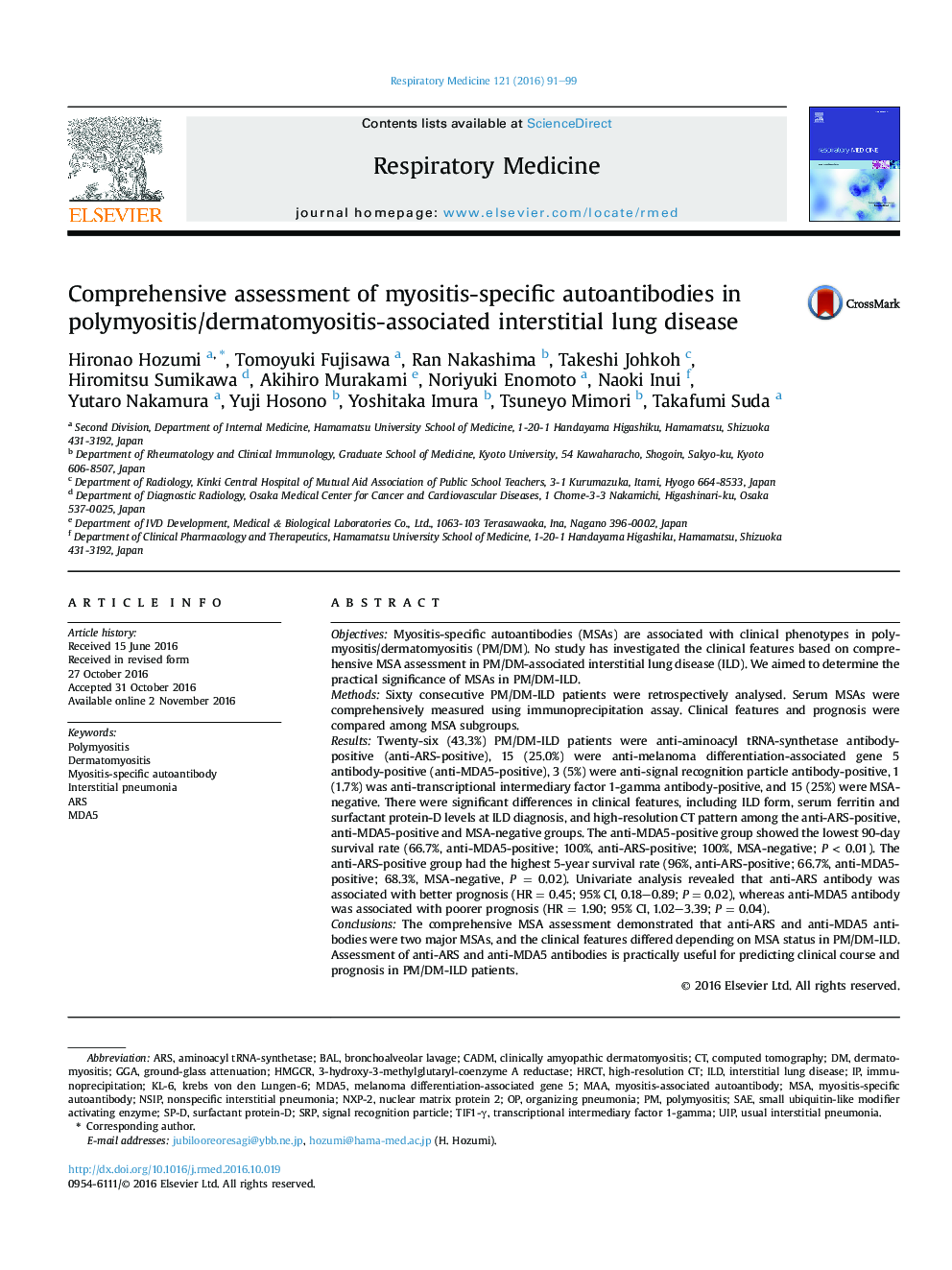| Article ID | Journal | Published Year | Pages | File Type |
|---|---|---|---|---|
| 5725034 | Respiratory Medicine | 2016 | 9 Pages |
â¢Serum MSAs were comprehensively measured using IP assay in PM/DM-ILD patients.â¢Anti-ARS and anti-MDA5 antibodies were the two major MSAs in PM/DM-ILD.â¢Clinical and radiographical features were different among the MSA subgroups.â¢Assessment of MSAs may be useful for predicting the clinical course and prognosis.
ObjectivesMyositis-specific autoantibodies (MSAs) are associated with clinical phenotypes in polymyositis/dermatomyositis (PM/DM). No study has investigated the clinical features based on comprehensive MSA assessment in PM/DM-associated interstitial lung disease (ILD). We aimed to determine the practical significance of MSAs in PM/DM-ILD.MethodsSixty consecutive PM/DM-ILD patients were retrospectively analysed. Serum MSAs were comprehensively measured using immunoprecipitation assay. Clinical features and prognosis were compared among MSA subgroups.ResultsTwenty-six (43.3%) PM/DM-ILD patients were anti-aminoacyl tRNA-synthetase antibody-positive (anti-ARS-positive), 15 (25.0%) were anti-melanoma differentiation-associated gene 5 antibody-positive (anti-MDA5-positive), 3 (5%) were anti-signal recognition particle antibody-positive, 1 (1.7%) was anti-transcriptional intermediary factor 1-gamma antibody-positive, and 15 (25%) were MSA-negative. There were significant differences in clinical features, including ILD form, serum ferritin and surfactant protein-D levels at ILD diagnosis, and high-resolution CT pattern among the anti-ARS-positive, anti-MDA5-positive and MSA-negative groups. The anti-MDA5-positive group showed the lowest 90-day survival rate (66.7%, anti-MDA5-positive; 100%, anti-ARS-positive; 100%, MSA-negative; PÂ <Â 0.01). The anti-ARS-positive group had the highest 5-year survival rate (96%, anti-ARS-positive; 66.7%, anti-MDA5-positive; 68.3%, MSA-negative, PÂ =Â 0.02). Univariate analysis revealed that anti-ARS antibody was associated with better prognosis (HRÂ =Â 0.45; 95% CI, 0.18-0.89; PÂ =Â 0.02), whereas anti-MDA5 antibody was associated with poorer prognosis (HRÂ =Â 1.90; 95% CI, 1.02-3.39; PÂ =Â 0.04).ConclusionsThe comprehensive MSA assessment demonstrated that anti-ARS and anti-MDA5 antibodies were two major MSAs, and the clinical features differed depending on MSA status in PM/DM-ILD. Assessment of anti-ARS and anti-MDA5 antibodies is practically useful for predicting clinical course and prognosis in PM/DM-ILD patients.
